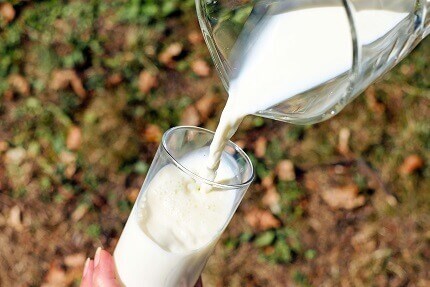Viscous and Sensitive
Pumping Viscous and Shear-Sensitive Fluids
For some industries pump selection isn’t just a question of getting a fluid from point A to point B, it requires a more specialised approach to avoid damaging the product or altering its physical properties. This is the case with industries that use or, manufacture or supply viscous and shear-sensitive fluids.
These fluids can respond unpredictably under stress, either thinning out (thixotropic) or thickening (rheopectic). This can affect flow characteristics and process reliability which could have a detrimental effect on the end product. Some materials, like chocolate, may separate if over-agitated, while others, like beer or cream, may foam or degrade under high shear.
Key Considerations for pumping viscous and shear-sensitive fluids
Low Shear Handling: To maintain product integrity, pumps must avoid excessive agitation so considerations to fluid vicscosity, solids in suspension, pump and motor speed in relation to the type of fluid you are transferring must be undertaken.
Suction Lines: Poorly designed suction piping can cause air entrainment, cavitation, or inadequate fluid supply to the pump, which may lead to performance issues, recirculation or product degradation. Adequate fluid supply without obstruction or tight bends should also be considered.
Temperature Control: Some fluids require heating (e.g., bitumen, oils, resins or gels) or cooling (e.g., condensate, boiler feed water or syrups) to maintain a viscosity that can be pumped easily, without damaging the molecule make up of the fluid.
Cleaning: This is important for hygienic or food-grade applications where CIP/SIP compatibility may be required.
Self-Priming & Dry Running: This is useful for start-up conditions and processes where there is intermittent flow.
Seal Selection: Sensitive fluids may require a lip seal design, a double mechanical seal should the fluid be sticky or viscous to prevent contamination or air ingress, or where hygiene needs to be maintained through every part of the process.
Suitable Pump Types:
Progressing Cavity Pumps
Progressing Cavity Pumps transfer fluid using a rotor and stator. This type of pump is ideal for thick and shear-sensitive products.
Applications: Bitumen, latex, chocolate
Pros: Gentle flow, metering accuracy
Cons: Not ideal for dry run condition and requires stator replacement which can be difficult
Peristaltic Pumps
Peristaltic Pumps operate by compressing a hose to push fluid through the transfer process. They are ideal for hygienic and low-shear applications because there is little agitation of the fluid.
Applications: Algae, egg whites, bio-process fluids
Pros: Seal-less, low shear, self-priming
Cons: Limited flow, hose wear
AOD (Air-Operated Diaphragm) Pumps
AOD Pumps use compressed air to drive two flexible diaphragms, one at the inlet and the other at the outlet. They are suitable for a wide range of fluid viscosities and can handle sheer sensitive liquid due to their gentle movement.
Applications: Cream, sauces, industrial coatings
Pros: Solids-handling, self-priming, ATEX options
Cons: Pulsating flow, dependent on air supply
Lobe Pumps
Lobe Pumps are rotary pumps that trap fluid between ‘lobes’ and are often used in sanitary or high purity settings. Their gentle motion is ideal for delicate fluid that requires low sheer handling.
Applications: Dairy, food ingredients, pharmaceuticals
Pros: Hygienic, reversible, smooth flow
Cons: Sensitive to abrasives, higher cost
Vane Pumps/Flexible Impeller Pumps
Vane and Flexible Impeller Pumps provide a very gently pumping action, and are able to maintain efficiencies event at low speeds. They use extendable vanes to trap fluid and move it through the pump to the outlet. They offer a consistent, low-sheer flow and are best for medium-viscosity fluids.
Applications: Lubricants, paints, resins
Pros: Compact, self-priming
Cons: Wear on vanes, not ideal for solids
Which industries and processes handle viscous and shear-sensitive fluids?
Food & Beverage: Chocolate, dairy, sauces, beer, cream
Pharmaceutical & Cosmetics: Lotions, serums, emulsions, gels
Chemical Processing: Latex, resins, polymers, adhesives
Oil & Gas: Bitumen, sludge emulsions, additives
Biotech & Agriculture: Algae, nutrient feeds, bio-extracts
Why Choose North Ridge Pumps?
At North Ridge Pumps, we understand the challenges of pumping viscous, shear-sensitive, and complex fluids. With decades of experience across diverse industries which includes food & beverage, chemicals, wastewater, cosmetics, and pharmaceuticals, we offer more than just pumps: we provide engineered solutions tailored to your exact needs.
Our Commitment Includes:
Expert Guidance: Our engineers work closely with you to ensure optimal pump selection for fluid properties, process needs, and long-term reliability.
Whole of Market Access: We are not tied to one brand, which gives us the flexibility to specify the best pump technology for your application.
Customisation Options: From heating jackets and material upgrades to ATEX-rated configurations and hygienic designs, we adapt pumps to suit your process perfectly.
Reliable Support: Our UK-based team provides technical support, maintenance advice, and after-sales care to keep your operations running efficiently.
Contact us today to discuss your application — or browse our pump selection online to see how we can help keep your process flowing smoothly.






